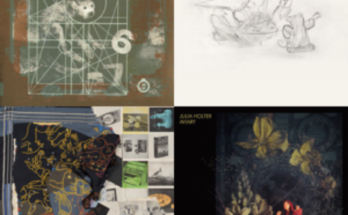I realize that the 21st century has just begun, but that’s not going to stop me from designating these four albums as the “Best of the Century.”
Death Cab for Cutie
Plans
Almost all of the songs on Plans are about love and relationships. But if that sounds like a dreadful clichÇ in the making, rest assured that it’s not. On Plans, Ben Gibbard analyzes love from every possible angle. “Your Heart is an Empty Room,” is a painfully honest song about finding love and throwing it away (“cause the chase is all you know/and she stopped running months ago”). But Gibbard gets truly profound when he writes about love in the twilight of life. “I Will Follow You into the Dark,” is downright brilliant: Gibbard reflects on the folly of religion and the uncertainty of death, but comes to the conclusion that love can survive anyway.
Beck
Sea Change
In the mid-1990s, Beck Hansen’s music was a cluttered juxtaposition of rock, folk and hip-hop. Granted, albums like Mellow Gold and Odelay were good, but it seemed like there was something beneath the surface waiting to come out. After Beck and his longtime girlfriend cut ties, he sat down with an acoustic guitar and wrote the 12 songs that make up Sea Change. The record’s best tracks, “Lost Cause” and “The Golden Age,” are simple and straightforward. The presence of producer Nigel Godrich (who also worked with Radiohead) adds a subtle, electronic depth to the otherwise stripped-down sound.
Coldplay
A Rush of Blood to the Head
Ever since Coldplay found fame in America, ripping on the band has been more fashionable than listening to them. Still, I can’t help but think that Chris Martin is one of the best songwriters of our generation. When one strips a Coldplay song down to its core – the chord progressions that frame the song and the vocal melodies that accompany them — it’s hard to deny that Martin has crafted some brilliant pieces of music. Coldplay is at its best on A Rush of Blood to the Head, mixing piano ballads (“The Scientist” and “Amsterdam”) with an experimental edginess (“Politik” and “Clocks”).
Bright Eyes
Cassadaga
Conor Oberst, who essentially is Bright Eyes, has always been regarded as a great lyricist, someone with the uncanny ability to find beauty in the mundane. On Cassadaga, Oberst criss-crosses the U.S., talking to psychics in Florida, going on detox in L.A., and generally coming to the conclusion that life is not so bad. The songs on this album pack a punch; he hasn’t abandoned the balladry that made him famous, but his sound has evolved. Oberst, once the epitome of emo, seems to be growing up and you get the impression that this is just the beginning. Cassadaga was not a fluke; Conor Oberst will be writing great music for a long time.



